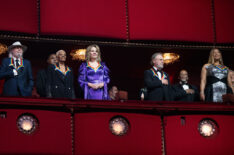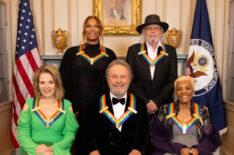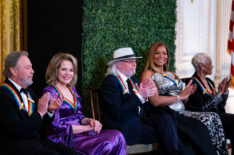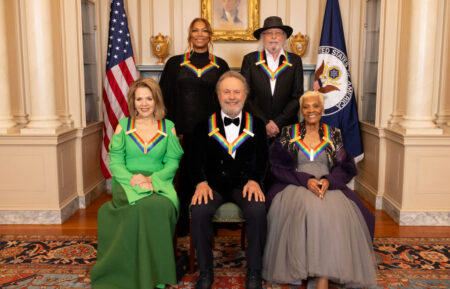Barry Gibb

Singer • Songwriter • Record Producer • Musician • Actor
Birth Name: Barry Alan Crompton Gibb
Birth Date: September 1, 1946
Age: 78 years old
Birth Place: Douglas, Isle of Man
Children: Michael Gibb
Siblings: Andy Gibb, Maurice Gibb, Robin Gibb
Bands: Bee Gees
Though often derided by media pundits for his falsetto voice and matinee idol looks, pop music fans knew that Barry Gibb of the Bee Gees was one of the most successful singer-songwriters in the history of the medium. From 1959 to 2001, Gibb and his brothers Robin and Maurice produced a string of hit songs and albums that sold an estimated 220 million units, a figure rivaled only by the Beatles, Elvis Presley and Michael Jackson.
As the Bee Gees' chief songwriter and producer, as well as co-lead singer with Robin, Gibb guided the group through four decades of career highs and lows, from their melancholy hits of the 1960s like "To Love Somebody" and "Lonely Days" to the runaway success of the "Saturday Night Fever" (1977) soundtrack and a triumphant comeback in the 1990s, which culminated in their induction into the Rock and Roll Hall of Fame. During this period, Gibb was also an in-demand writer and producer who spun gold for other artists, including Barbra Streisand, Kenny Rogers and Diana Ross. With nine No. 1 singles with the Bee Gees and countless Top 10 and Top 40 hits to his credit, Barry Gibb's status as one of the most outstanding figures in world pop history remained untouched, even after five decades.
The extraordinary career of Barry Andrew Crompton Gibb might never have happened, due to an injury he suffered shortly after his birth on Sept. 1, 1946 on the Island of Man. At just 18 months of age, he was severely burned when he pulled a cup of hot tea onto himself. Doctors told his mother, Barbara Gibb, that he would not survive more than an hour. But he pulled through, and after two months in the hospital, emerged with no memory of the event.
In 1953, Gibb's father, drummer and bandleader Hugh Gibb, brought Barry and his brothers, fraternal twins Robin and Maurice, and their sister Lesley, to Manchester, England, where they had their first exposure to rock-n-roll music from their sister, and discovered that they could sing in harmony. According to pop culture legend, Barry, Robin and Maurice made their public debut at a local theater, where children could lip-sync to records between features.
The brothers brought a cumbersome 78-rpm record for their performance, but it broke en route to the theater, forcing them to sing live. Reportedly, the response was so positive that they decided to form a band, which they called the Rattlesnakes. School was of little interest to Gibb, who dropped out after only a year.
Gibb and his brothers began performing in earnest after the family moved to Queensland, Australia in 1958 following the birth of their third brother, Andrew. Billed as the Bee Gees, which stood for the Brothers Gibb, they were a popular live act and appeared frequently on television, performing songs primarily written by Barry, who netted the R5KA award for Composer of the Year in 1965. In 1966, they returned to England, where they discovered that their single, "Spicks and Specks," from their debut album, The Bee Gees Sing and Play 14 Barry Gibb Songs (1965) had gone to No. 1 on the Australian charts during their voyage. They attracted the attention of manager Robert Stigwood, who mounted an expensive promotional campaign for the group in 1967 that proclaimed them the year's "Most Significant New Talent."
The gambit worked, as evidenced by their first singles, the mournful, psychedelic "New York Mining Disaster 1941" and "To Love Somebody," a soulful ballad originally intended for Otis Redding. Both songs broke the Top 20 singles charts in the U.S. and U.K., establishing the Bee Gees as a pop act on the rise. For these and the majority of their songs that followed, the lineup featured Barry on rhythm guitar and lead vocals, which he shared with Robin, while Maurice provided vocal harmonies, bass, and a variety of instruments, including piano, organ and Mellotron, that fleshed out the group's songs. Barry was the group's primary songwriter, though he frequently shared those duties with Robin, who contributed lyrics and melody.
In 1968, Gibb met hostess and model Linda Gray at a taping of the U.K. television show "Top of the Pops" (BBC1/BBC2, 1964-2006). At the time, he was unhappily married to Sydney native Maureen Bates, but after meeting Gray, they separated, and Gibb moved in with Gray, whom he married in 1970, shortly after divorcing from Bates. In the midst of this joy, however, the fraternal unity of the Bee Gees splintered under the weight of rancor between Barry and Robin, who believed that Stigwood was favoring his older brother as the voice of the band. After the group selected Barry's "First of May" over Robin's "Lamplight" as the first single from the 1969 album Odessa, Robin quit the group, leaving the Bee Gees as a twosome who occasionally filled out their stage show with sister Lesley. The duo generated a U.K. hit single, "Don't Forget to Remember," before deciding to split and pursue their own fortunes. All three brothers released solo albums, though Barry's effort never saw a release. Deciding that they fared better as a group than as solo performers, the brothers reunited in 1970.
For a brief period, the reformed act appeared to be even more accomplished than their previous incarnation. Their first post-breakup single, 1970's "Lonely Days," showed a deeper mastery of pop music with its Abbey Road- esque tempo changes, and reached No. 3 in the United States. Its follow-up, the gorgeous ballad "How Can You Mend a Broken Heart," marked their first visit to the top of the Billboard Hot 100 chart and later provided Al Green with a major hit in 1972. But within a few years, the Bee Gees' brand of sweeping, romantic pop had lost its luster with audiences. A pair of failed subsequent albums left the brothers feeling creatively spent and unsure of their direction. Drug and alcohol use was also rampant among the brothers during this period, with Maurice suffering perhaps the worst of the three from unchecked alcoholism, but Barry also admitted that his substance issues had grown unwieldy, and sought to bring them into check. The birth of his son, Stephen, in 1973 would be a grounding force for him.
At the suggestion of their label chief, the legendary Ahmet Ertegun, the Bee Gees began working with producer Arif Mardin, who recognized their knack for blue-eyed soul and began pushing them towards more R&B-inclined material. In 1975, they unveiled a new sound, dominated by funk-driven beats that hewed closely to the growing sound of disco. Mardin also suggested that Barry deliver this new material in a soaring falsetto, which he unveiled on the first single from the Mardin sessions, "Jive Talkin'." It provided them with their second No. 1 single in the States, and was quickly followed by Top 10 hits like "Nights on Broadway" and another No.1 with "You Should Be Dancing." But the success of these dance-flavored tracks paled in comparison to their next effort: the Saturday Night Fever soundtrack.
Contracted during post-production on the John Badham film, the Bee Gees penned six original songs for the album, and recorded four themselves - "Stayin' Alive," "Night Fever," "How Deep Is Your Love" and "More Than a Woman," which was also recorded by Tavares for the LP. All but "Woman" reached the top of the singles charts, while the Tavares version broke the Top 10. An additional Bee Gees-penned song from the record, "If I Can't Have You" by Yvonne Elliman, also reached No. 1 on the pop singles chart. During an eight month period in late 1977 and 1978, the Bee Gees had six No. 1 songs on the U.S. charts, including "I Just Want To Be Your Everything" by their younger brother, Andy, who had launched his own brief but successful music career. The Saturday Night Fever soundtrack would earn five Grammys, including Album of the Year in 1979, and go on to become the ninth largest selling album worldwide in recording history.
The explosive success of the Saturday Night Fever made the Bee Gees in-demand writers for other acts hoping to transform their own careers in a similar fashion. Barry and Robin wrote "Emotion" for Australian singer and old friend Samantha Sang, who turned it into a Top 10 hit, while '60s vocal group veteran Frankie Valli shot to No. 1 with the Gibbs' title track for the movie version of the musical "Grease" (1978). When the Bee Gees returned to recording new material for themselves, the result was another trifecta of No. 1 hits, including "Too Much Heaven," and a sold-out North American tour. But as the 1970s drew to a close, the Bee Gees' grip on the pop market proved tenuous.
Disco was slowly losing its impact with listeners, who often displayed a visceral dislike for the music through disc jockey-sponsored rallies and wholesale destruction of disco records. Since the Bee Gees were unquestionably the leading figures in disco at the time, their music received the brunt of the public's ire. The highly publicized failure of "Sgt. Pepper's Lonely Hearts Club Band" (1978), a puerile fantasy starring the brothers and Peter Frampton in a musical built around the songs of the Beatles, also took the group down a peg. The brothers shrewdly decided to pull in the reins on their singing careers and focus primarily on songwriting and producing.
Barry produced and co-wrote the majority of Barbra Streisand's chart-topping 1980 album, Guilty, which featured their Grammy-winning duet, "Guilty" and the No. 1 hit "A Woman in Love." He worked similar magic for such artists as Dionne Warwick, who netted a gold record with 1982's Heartbreaker, and Kenny Rogers with 1983's Eyes That See in the Dark, which featured the No. 1 song of the year, the Barry-penned "Islands in the Stream" with Dolly Parton. And though "Staying Alive" (1983), the long-awaited sequel to "Saturday Night Fever," was a critical flop, the Bee Gees' soundtrack was a commercial hit, reaching No. 6 in the States. During this busy period, Gibb also released two solo albums, including the modestly successful Now Voyager, which featured duets with fellow Aussie, Olivia Newton-John.
Despite their busy careers in Europe, the Bee Gees remained persona non grata as artists in the United States, as evidenced by the failure of the 1987 record, E.S.P., which was a stellar success in virtually every other country on the strength of the single "You Win Again." The Gibb brothers suffered an even deeper loss the following year with the death of their brother Andy at age 30, whose rampant drug and alcohol use in the 1980s left him susceptible to a fatal inflammation of the heart. Barry was always closest to Andy, saying later that Robin and Maurice were twins and always had each other, leaving the eldest brother on his own until Andy - who actually looked like and sounded vocally similar to Barry - came into his life. In fact, it had been Barry who had predominantly guided Andy's career at its height, producing his records and offering counsel. Barry's grief over losing his brother at such a young age was somewhat tempered by the arrival of two more sons, Travis and Ryan.
In 1989, the Bee Gees roared back to the charts with "One," the ebullient lead single from their album of the same name. The song brought the band back to the Top 10 for the first time in over a decade, and generated a major U.S. and U.K. tour. The jaunt was a tremendous challenge for Gibb, who struggled with both a serious back problem and arthritis, both of which made it nearly impossible for him to perform for the duration of a concert. The pain Gibb endured during this tour put an end to the idea of lengthy tours with the Bee Gees, which raised some concerns after 1997's Still Waters became the group's first Top 20 album since the 1970s. The solution was to mount a single show in Las Vegas, which was intended as their final live performance. However, the response to "One Night Only" was so overwhelmingly positive that Gibb marshaled his strength for a series of similar concerts around the globe, including London Wembley Stadium and Sydney's Olympic Stadium. This triumphant revival was capped by a 4-CD retrospective, Tales from the Brothers Gibb: A History in Song, which presented the band's prolific career with the proper degree of respect, and induction by the Beach Boys' Brian Wilson into the Rock and Roll Hall of Fame.
In 2001, the Bee Gees completed their 22nd studio album, This is Where I Came In. The album, which reached the Top 20 in the United States, was sadly their last as a trio. In 2003, Maurice Gibb died of a heart attack while undergoing emergency surgery for a strangulated intestine. His grief-stricken brothers announced that they would effectively retire the Bee Gees name as a tribute to Maurice, and accepted the Grammy Legend Award for him in a tearful acceptance speech in 2003. Barry and Robin performed together sporadically over the next few years as fans pined for a genuine Bee Gees reunion. In 2009, they got their wish when Robin announced that he and Barry were re-forming the group and commencing with new musical projects. A flurry of high-profile television appearances, including "American Idol" (Fox, 2002-16), followed in the wake of the news. In 2010, both Gibb brothers were associated with a Bee Gee biopic by director Steven Spielberg. Sadly, Gibb would prematurely lose his third brother, Robin, who died of cancer after a very public battle on May 20, 2012, leaving him the sole surviving brother and Bee Gee.
By Paul Gaita
Credits

The 46th Annual Kennedy Center Honors
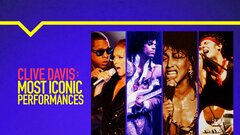
Clive Davis: Most Iconic Performances

CBS Mornings
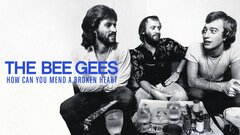
The Bee Gees: How Can You Mend a Broken HeartStream

Sandy & Junior: Imortal

Bee Gees: Everlasting Words

Sir Cliff Richard: 60 Years in Public and in Private

Today 3rd Hour

The Sunday Project

Stayin' Alive: A Grammy Salute to the Music of the Bee Gees

Barry Gibb - Live in Glastonbury

The Royal Variety Performance 2016

The Great Songwriters

Barry Gibb: In the Now

The Joy of the Bee Gees
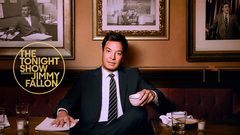
The Tonight Show Starring Jimmy FallonStream

The Tonight Show Starring Jimmy FallonStream

Live! With Kelly and Michael

CBS This Morning: Saturday

CBS This Morning

The Story of the Bee Gees

Bee Gees: In Our Own Time

Lorraine
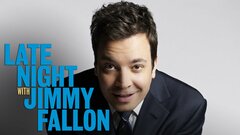
Late Night With Jimmy Fallon

Piers Morgan's Life Stories

Today With Kathie Lee & Hoda

The One Show

etalk

In Dreams

Entertainment Tonight Canada

Dancing With the StarsStream

The Late Late Show

VH1 Salutes The Bee Gees

Bee Gees: One Night Only

Bushwhacked

A '70s Celebration: The Beat Is Back

CBS News Sunday Morning
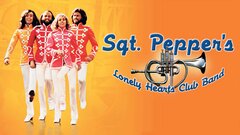
Sgt. Pepper's Lonely Hearts Club BandStream

GreaseStream
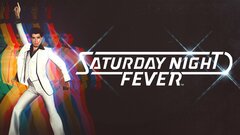
Saturday Night FeverStream

Saturday Night LiveStream

TodayStream


